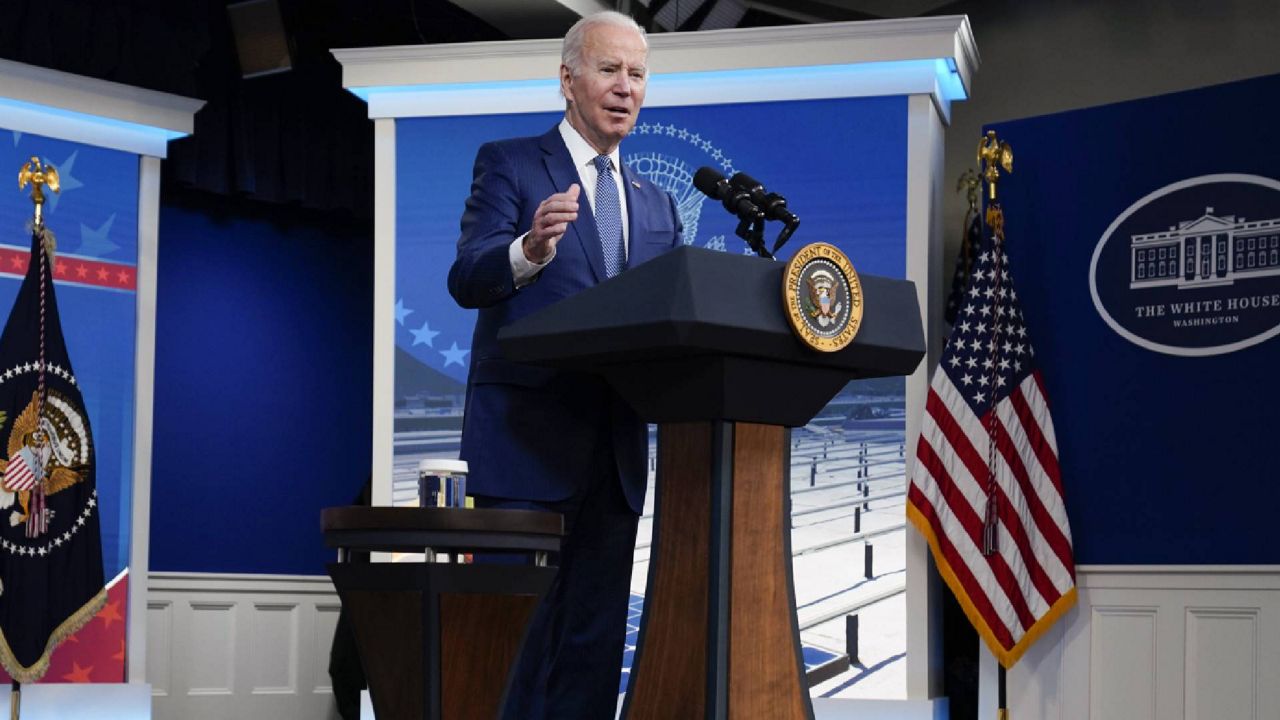President Joe Biden on Wednesday highlighted the ways his administration was fighting supply chain issues, prices and other economic concerns around the country ahead of the holidays, even as a new variant of the coronavirus could threaten the progress made in recent months.
“You know me, I’m an optimist,” he said at the White House when asked if he was worried about the omicron variant slowing economic progress, as top economic officials warned this week.
The first U.S. case of the variant was detected in California on Wednesday, and travel restrictions implemented to slow the spread of the virus have already sparked conversation about how new mitigation strategies will impact labor and supply chains.
Biden has especially worked to improve backlogs at the nation’s ports, and the White House announced this week that the number of shipping containers sitting at California docks for extended periods has dropped by 40% since Nov. 1.
The president appointed a port envoy, John Porcari, to oversee the effort, which has focused on the Los Angeles and Long Beach ports where about 40% of the nation’s goods arrive.
"Those two ports are much more fluid. The goods are moving faster," Porcari said in an interview with Spectrum News Wednesday. "As Americans, we have gotten used to our goods movement chain functioning without having to think about it twice. During the pandemic, we found out we don't have that luxury."
Porcari told Spectrum News that the supply chain is currently carrying 21% more goods than the last peak in 2018, an amount compounded by pandemic delays.
The two California ports were set to start charging companies $100 per day for each container that dwelled longer than nine days, but they said this week they would delay the fee due to the progress seen in the last month.
"The possibility of the fee being imposed is very real," said Porcari, who has been working closely with port directors around the country. "But I think we would all define success as not having to impose it."
He said for the first time this week, short-dwelling containers — which remains at ports for four days or less — outnumbered long-dwelling containers. Whether the $100 fee is imposed on carriers depends on whether container movement continues to improve, Porcari explained.
Porcari took the position of port envoy in August, and he said recent progress is due to private companies "pulling in the same direction" when they didn't regularly interact before.
Biden on Wednesday credited his administration’s efforts with improvements in supply and store inventory.
“If you watch the news recently, you might think the shelves and all our stores are empty across the country,” he said. “For the vast majority of the country, that's not what's happening. Because of the actions the administration has taken in partnership with business and labor — retailers and grocery stores, freight movers and railroads — shelves are going to be stocked.”
He met earlier this week with CEOs of major companies like Walmart, Kroger, Food Lion, Mattel and others.
Walmart CEO Doug McMillon said in that gathering that he saw more than a 50% increase in throughput from the California ports since the implementation of a 24-hour shipping window, another piece of Biden’s efforts.
But the omicron variant has renewed concerns about inflated prices and the overall path to recovery, Federal Reserve Chair Jerome Powell said this week.
"Greater concerns about the virus could reduce people’s willingness to work in person, which would slow progress in the labor market and intensify supply-chain disruptions,” he testified before a senate committee Tuesday.



